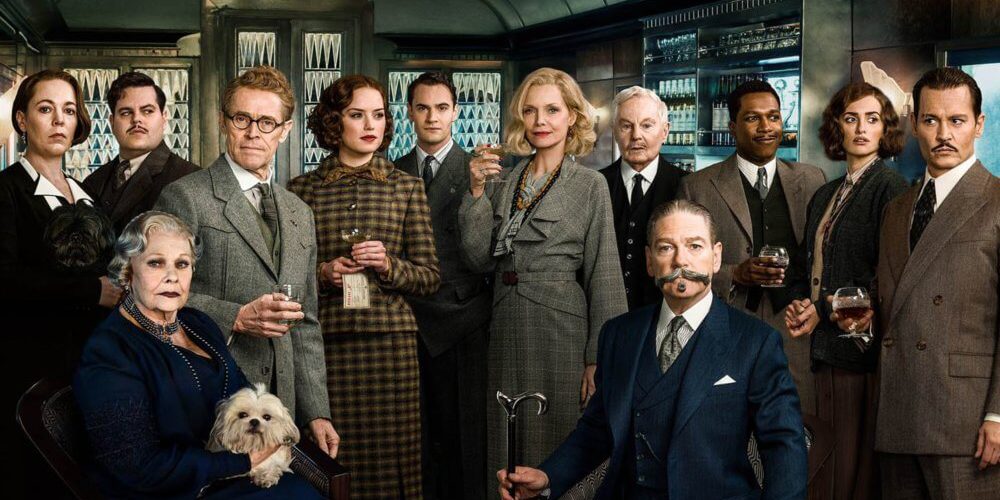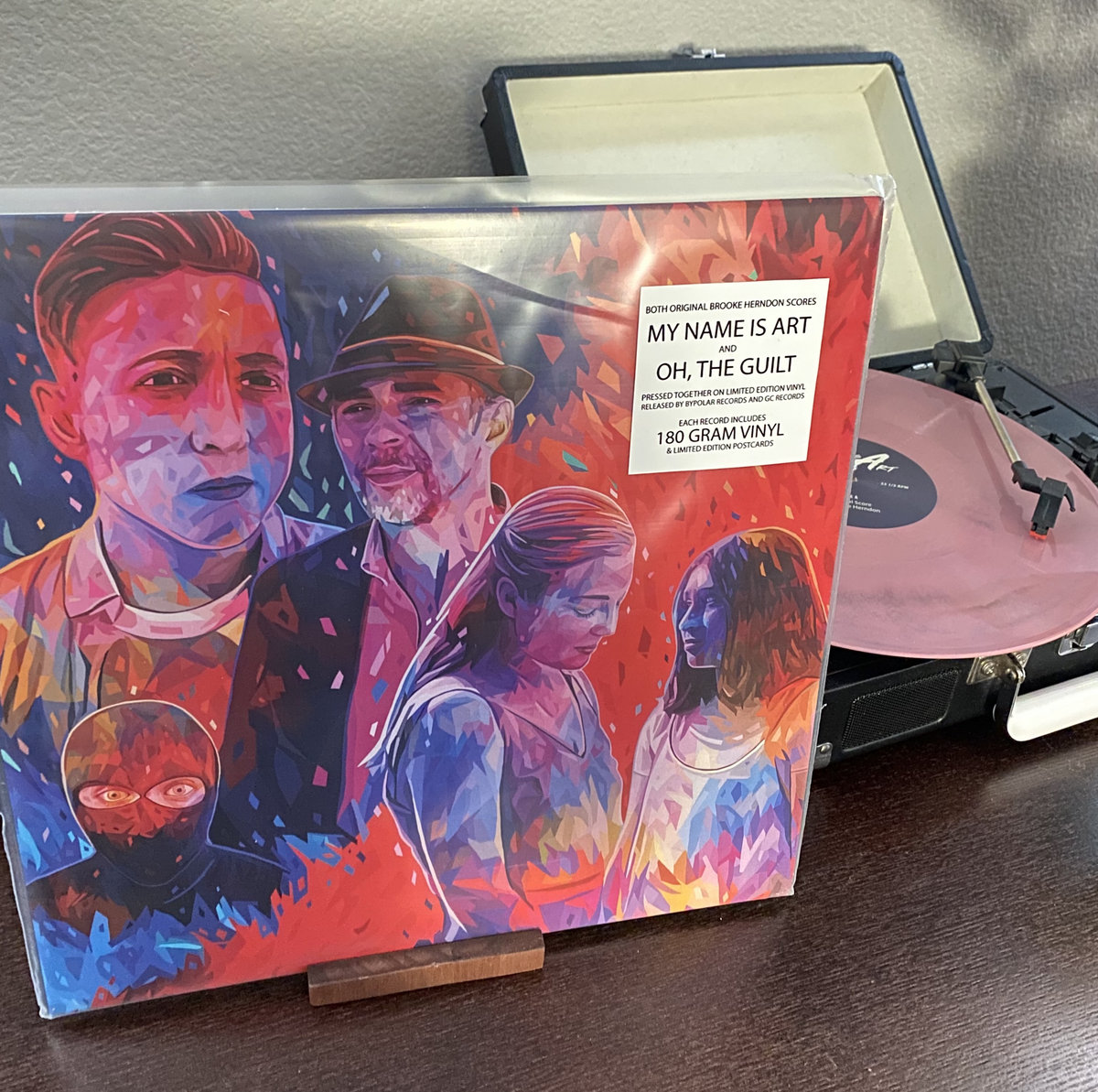“It’s harder to heal than it is to kill,” Tamora Pierce, Alanna: The First Adventure
—–
In a world of film where everything that’s old is new again, it was only a matter of time before Agatha Christie, the “Queen of Crime,” and bestselling author of all time, had her back catalogue pillaged for Hollywood script material. It would have been anyone’s guess what take Hollywood would have on a Christie novel. A super color saturated musical? A bizarre Baz Luhrman-esque retelling in modern times? A futuristic dystopian re-imagining a la Snowpiercer? Perhaps, given the current climate of re-castings, remakes and retellings it was a bold choice to make Murder on the Orient Express as a straightforward period piece, told here as a faithful adaptation of the original work. Indeed, Orient Express turns what might have been just another Oscar-bait star-studded film into a genuine exploration of the nature of morality, murder, grief and loss.
Directed by and starring Kenneth Branagh, I admit to being surprised and impressed by a man whose more recent directing credits include the forgettable first Thor movie and whose acting I primarily associate with Gilderoy Lockhart from the second Harry Potter movie (although I did enjoy him in a relatively minor role as Commander Bolton in Christopher Nolan’s Dunkirk from earlier this year). Branagh wrangles the cast into a highly effective collective. No single actor, excepting perhaps Branagh himself, turns in a particularly noteworthy performance, but their ensemble efforts were well above average.
Orient Express is one of the oldest forms of storytelling; a whodunnit. When Johnny Depp’s loathsome Samuel Ratchett is murdered, famed detective Hercule Poirot (Kenneth Branagh) is called into service as the only man who can solve the case before the train arrives at its next stop. Poirot differs from the closest cinematic antecedent I can think of, that of Robert Downey Jr.’s portrayal of Sherlock Holmes in his duology of self-titled movies. Downey’s Sherlock is a smug know-it-all who knows almost all the answers before he even knows the questions and can fight his way out of any situation his mouth can get him into. There’s a tendency to play a hyper astute character like these detectives for comedic relief, but Branagh’s Poirot does this with a great deal more panache. When Poirot brags, it’s as if he’s reading off ingredients for a recipe or facts from a history book. These are dry statements of truth rather than puffery. And because Poirot is so unassuming and reluctant to take a new case, his boasts are usually a surprise and always amusing. Indeed, while it’s anything but a comedy, it was a lot funnier than I thought it would be.
I generally rate movies like this by the speed and quality with which I can guess the murderer. Is the murderer too obvious? Does the murderer come out of left field and is impossible to guess? Did the movie earn this character as the murderer or thrust them upon us with vapid motivations? Orient Express passed all these tests. I started to suspect the real murderer more than halfway through the movie, though the twist is definitely something that should never be repeated again. I’m going to spoil it here, because the twist gets to the heart of where the movie’s depth really lies. The twist of the film is that all the passengers on the train knew each other before they boarded, indeed, they conspired to ride the train together because the victim, Samuel Ratchett, murdered a loved one they all had in common, a young child named Daisy Armstrong. They all murdered Ratchett, each taking a turn with the knife in a gruesome but tragically sad scene where the murder is revealed for the audience to see. It’s not a twist that could work more than once, but as the pieces started to fall into place during Poirot’s investigation, it became clear this could not be a coincidence. Once the viewer realizes the conspiracy, it puts an ironic twist on Director Bouc, Poirot’s friend who secures him passage on the train, commenting on how much he enjoys the temporary nature of riding the train with a group of strangers for a few days. I always enjoy movies that seed lines like that, which only come into their full meaning once the movie is over.
What is particularly effective about the twist is how well I thought the movie earned the outcome. Every hand that touched the murder weapon had their story told, each in a different haunting fashion. The real murder at the center of the story is not Ratchett’s, but the child Ratchett kidnapped and murdered, driving all the principle characters into such a state of depression they would consider and then enact an unthinkable act of revenge. It’s a particularly poignant way of showing what a murderer leaves behind after his victim is dead. It broke many of the cast members, either through their guilt or sense of loss. And all of them struggled mightily with the weight of that burden and the decision they made to kill Ratchett, just as many struggled with the murder weapon itself. These were not casual murderers or men and women bereft of morals. At the end of the film, when presented with an opportunity to kill one more time to free them of any threat of reprisal, they decline, preferring to be jailed or die themselves.
Overall, the film has an ethereal quality to it due to the use of obvious CGI backgrounds over saturated and put in soft focus. It gives the whole thing a dreamy quality that in many other films would have seemed trite or distracting. But in fact, large portions of the film do have a dreamlike quality. During the flashback of the murder scene, we see each of the murderers take their fatal stab at Ratchett. The pain in their eyes is palpable, along with the hate and the sadness. It’s a crime of passion, yes, but also of long, wearying grief and sorrow. It’s as if the characters themselves have been in a dreamlike state ever since Daisy Armstrong was killed.
And then there is the interesting case of Poirot himself. He professes to be a Javert-like detective for much of the film. There is only right and wrong, only black and white, no middle ground, no grey area, he says at various points. But at the end of the film he realizes not every case is so morally binary. Upon seeing a cast of criminals who were no less victims than their own, Poirot finds he cannot reveal the truth of what they’ve done, so much so that he offers his own life to them (a test, as it turns out, with no real threat of danger) in exchange for freedom. This is Poirot’s final chance to prove they are in fact murderers at heart, but given the opportunity, none can commit, and in fact a character attempts to take the blame herself and pulls the trigger of an unloaded gun pointed at her own head. Poirot, much like Javert near the end of Les Miserables has a crisis of faith and cannot follow through, in the end choosing to let them go free.
The heart of the movie lies in the morality of murder, the damage a murder leaves behind on all the victim’s loved ones, and the question of where a person’s moral breaking point lies. Can murder ever be moral? Can revenge ever be justified? And can murder ever bring peace? Movies with star studded casts often lean more heavily on name brand recognition than excellent writing and plot depth, so it’s a relief to see a film reach toward a higher question. It’s this quality that gives Branagh’s Murder on the Orient Express the justification it needs to be remembered and taken seriously.









